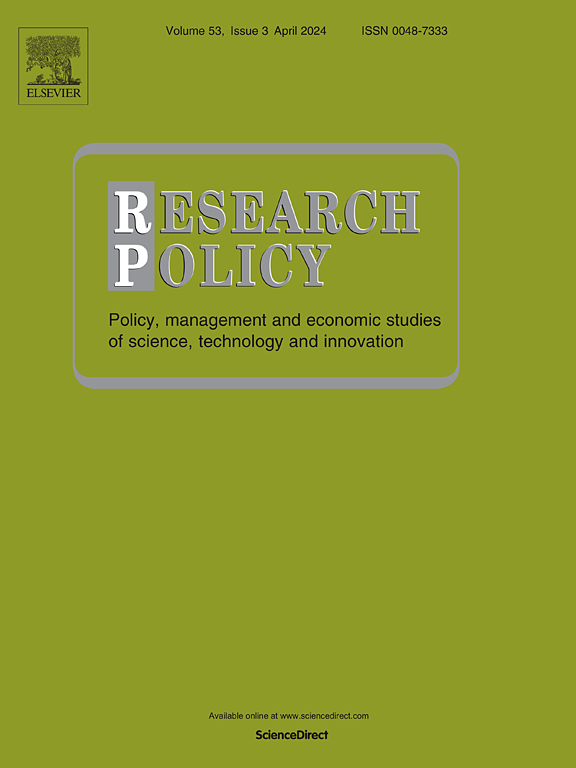CEO的职业视野和创新:短期利润和长期遗产的u型故事
IF 8
1区 管理学
Q1 MANAGEMENT
引用次数: 0
摘要
在战略领导研究中,CEO职业生涯视界(CCH)对企业资源投资和绩效的影响备受关注。传统的CCH研究认为,缩短CCH将减少CEO的冒险和公司对激进创新的投资,有趣的是,CCH研究的另一个新兴领域却得出了相反的结论。传统观点认为,CEO的行为是由短期利润优化带来的潜在个人利益驱动的。相反,新出现的观点反映了这样一种观点,即CEO的行为是由将社会利益置于个人利益之上,从而留下长期遗产的潜力所驱动的。为了调和这些观点,我们将CCH与追求激进创新之间的关系理论化为u型关系,这表明CEO的动机在其职业轨迹中不会保持不变或固定。我们还理论化了两个可能削弱这种关系的边界条件:公司董事会的忙碌和公司由专门的机构投资者拥有。该研究在石油和天然气行业测试了这些想法,在这个行业中,公司有机会追求以可再生能源为中心的激进创新,以及以使用传统化石燃料减少污染为中心的渐进式创新。对105家公司15年专利数据的分析支持了我们的预测。我们讨论了该研究对研究和实践的贡献,以及它对加快向净零解决方案过渡的政策制定的影响。本文章由计算机程序翻译,如有差异,请以英文原文为准。
CEO career horizon and innovation: A u-shaped tale of short-term profits and long-term legacy
In strategic‑leadership research, there is much interest in the influence of CEO's career horizon (CCH) on firm's resource investments and performance. While one line of CCH research, the traditional view, suggests that the shortening of CCH will reduce CEO risk-taking and firm's investments in radical innovation, intriguingly, a second emerging line of CCH research suggests the very opposite. The traditional view rests on the idea that CEO behavior is driven by the potential of personal gains through short-term profit optimization. Contrarily, the emerging view reflects the position that CEO behavior is driven by the potential of leaving long-term legacy by setting societal interests above personal ones. Reconciling these views, we theorize a U-shaped relationship between CCH and the pursuit of radical innovations, which recognizes that CEO motivations do not stay constant or fixed over their career trajectory. We also theorize two boundary conditions likely to attenuate this relationship: busyness of firm's board directors and firm's ownership by dedicated institutional investors. The study tests these ideas in the oil and gas industry, in which firms have opportunity to pursue radical innovations centering on renewable energies as well as incremental innovations centering on pollution reduction using traditional fossil fuels. Analysis of fifteen years of patent data for a panel of 105 firms shows support for our predictions. We discuss the study's contributions to research and practice, and its implications for policymaking to speed up transition to net-zero solutions.
求助全文
通过发布文献求助,成功后即可免费获取论文全文。
去求助
来源期刊

Research Policy
MANAGEMENT-
CiteScore
12.80
自引率
6.90%
发文量
182
期刊介绍:
Research Policy (RP) articles explore the interaction between innovation, technology, or research, and economic, social, political, and organizational processes, both empirically and theoretically. All RP papers are expected to provide insights with implications for policy or management.
Research Policy (RP) is a multidisciplinary journal focused on analyzing, understanding, and effectively addressing the challenges posed by innovation, technology, R&D, and science. This includes activities related to knowledge creation, diffusion, acquisition, and exploitation in the form of new or improved products, processes, or services, across economic, policy, management, organizational, and environmental dimensions.
 求助内容:
求助内容: 应助结果提醒方式:
应助结果提醒方式:


